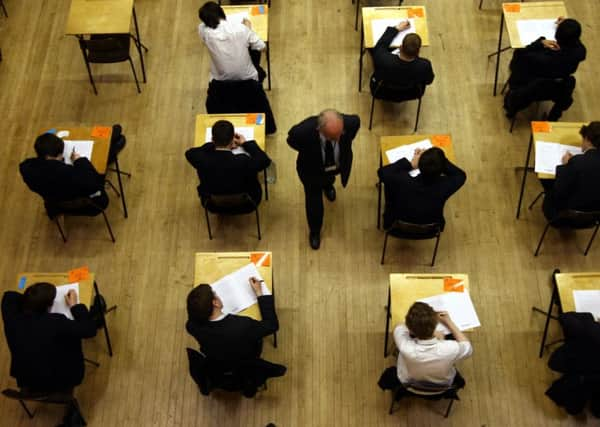Jayne Dowle: A mother's dilemma over GCSE options. Is there a right or wrong answer?


The challenge is to ensure that Jack not only picks his strongest subjects, but also chooses a range of examinations which will give him the most practical springboard to enter further education, employment or training.
If you’re lucky enough to have an enthusiastic and academically-inclined son or daughter in Year Nine, you’re probably looking forward to this event. All those exciting options, subjects we could only have dreamt of when we were at school; dance, drama, design technology. And to think we got dizzy at the thought of home economics.
Advertisement
Hide AdAdvertisement
Hide AdIf, however, your child finds school something of a challenge, like Jack, it’s a tough one. For me, the most important consideration is to look at them first and foremost as an individual. We must construct a course of GCSE study which will give Jack the best grounding possible for the adult world. And we’ve got to come up with a choice of subjects which will keep him motivated for the next two years until he leaves school.
So far we have agreed on only one choice: history. I’m pleased that my son shares my own fascination with how the past shapes the present. We’ve talked about how studying history will also help to develop his ability to compare and analyse information. His teacher backs up the choice already. However, we know that studying history will preclude the opportunity to study geography because of the way the timetable works. I understand the categorisation of “humanities”, but I can’t for the life of me see why the study of the past should clash with the study of the world we live in. It’s going to be a fun evening.
I’m working on the proviso that maths, English and science will be compulsory core subjects. Then we’ll need a humanity – which we’ve sorted, a language, a practical subject, several further “academic” subjects to be discussed and Jack’s choice of PE. I am happy to go along with the latter because he has loved sport since he was old enough to kick a ball, and he will need an outlet after all that revising.
Our major sticking point is the language; I think he should do French, because his teacher says he shows some ability. He thinks he can’t face the prospect of two years with his head tied up in vocabulary and verbs. I’m working on him by pointing out the various tempting careers which could open themselves up – tour rep for 18-30s holidays being one of them.
Advertisement
Hide AdAdvertisement
Hide AdEach set of personal circumstances must be regarded in the widest context. The purpose of GCSE choices is not just to keep your teenager occupied for the next couple of years. It is to maximise their potential in the outside world.
How though, can we predict the future for our offspring without having the full facts at our disposal? How can we guess now that picking business studies might be the making of them, or end up turning into a dud course with a disinterested teacher? How do we know that our child might not suddenly develop a bent for further maths or design technology?
I know we have to help them make their decision one day, but it all seems so final. What if they have regrets in a year’s time and can’t swap? I still rue the day I decided not to bother with Religious Education at O-level. With my Sunday school background, it would have been an easy pass. None of my friends were doing it though, so I thought it would be uncool. Such is the mind of a 14-year-old. Peer pressure must never be under-estimated.
It’s bad enough having all these variables to take into account. However, the process is not made any easier by those government ministers who bang on about the importance of science and technology at the expense of everything else. The Education Secretary, Nicky Morgan, had barely got her feet under the desk before she was warning young people that choosing to study arts subjects “could hold them back for the rest of their lives”.
Advertisement
Hide AdAdvertisement
Hide AdFar better to focus on physics, chemistry, technology and engineering – what’s known as “STEM” subjects, she insisted. I doubt many of our politicians boast a double first in any of the above, but this isn’t about them. It’s about a far more important group of people, our children.
What kind of message does this send to those – like my son – who might find such subjects mind-boggingly difficult? That the choices they make this year anyway could be a complete waste of time? That they will be consigned to the scrap heap before they even leave school? I am beginning to think that what we agree at this forthcoming “options evening” could be one of the easiest decisions we take for some time.